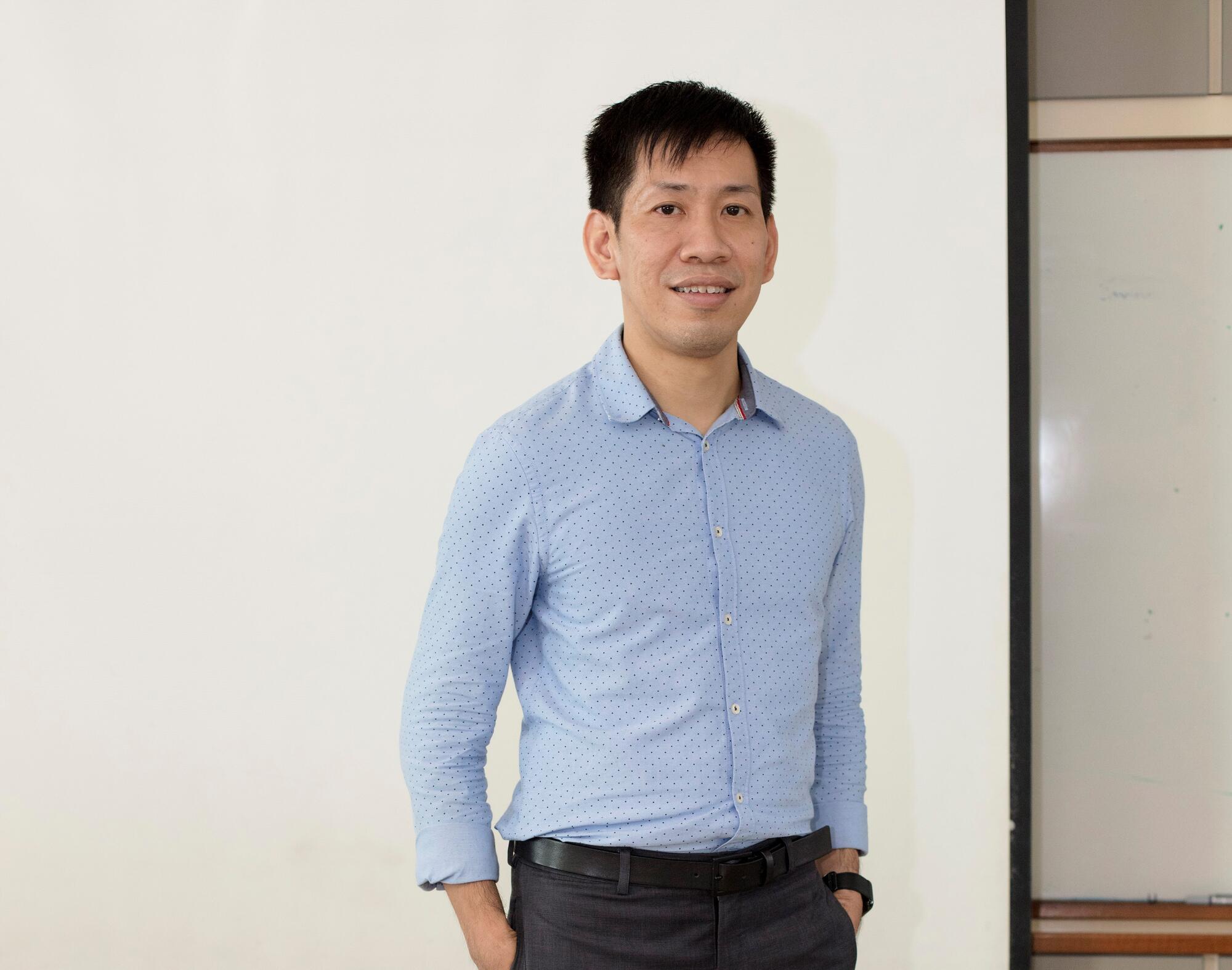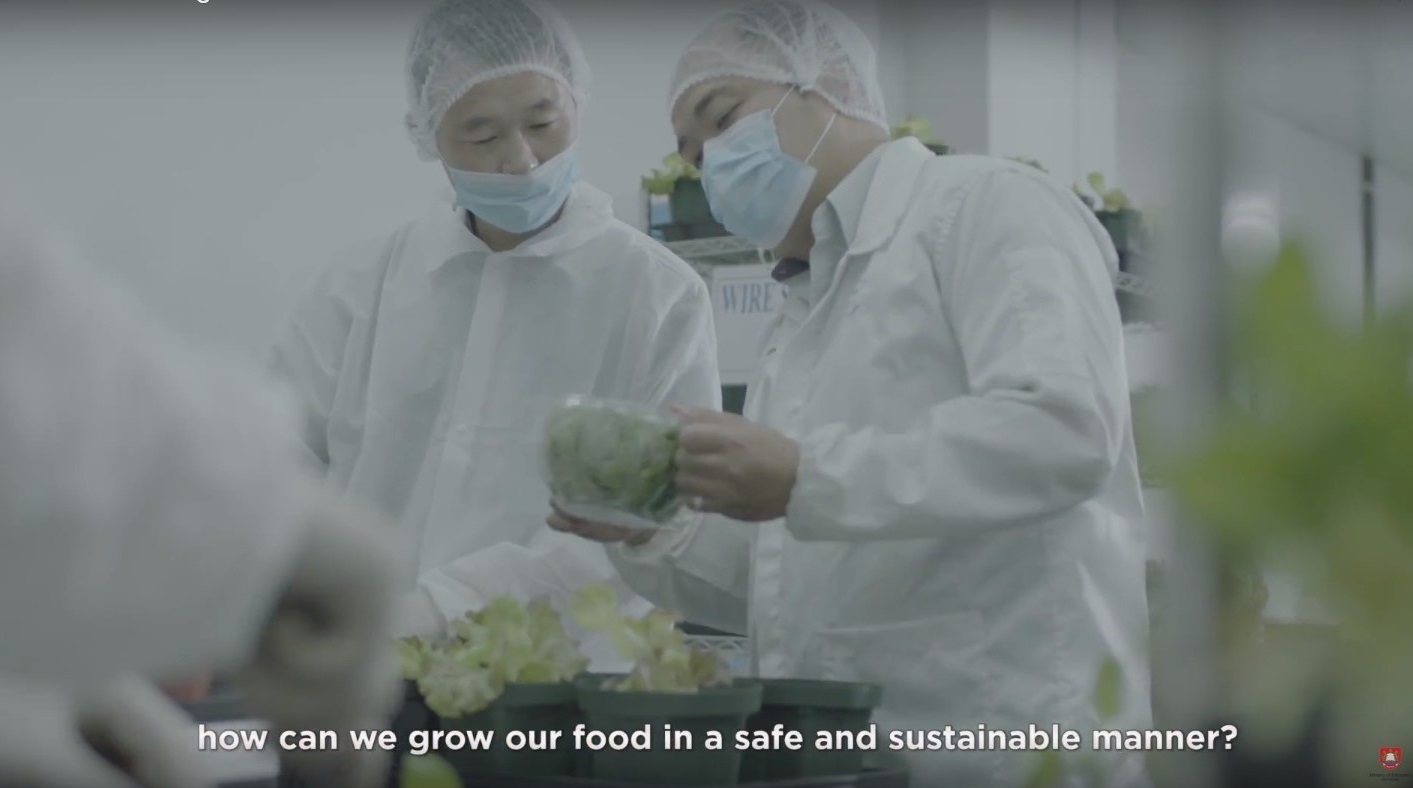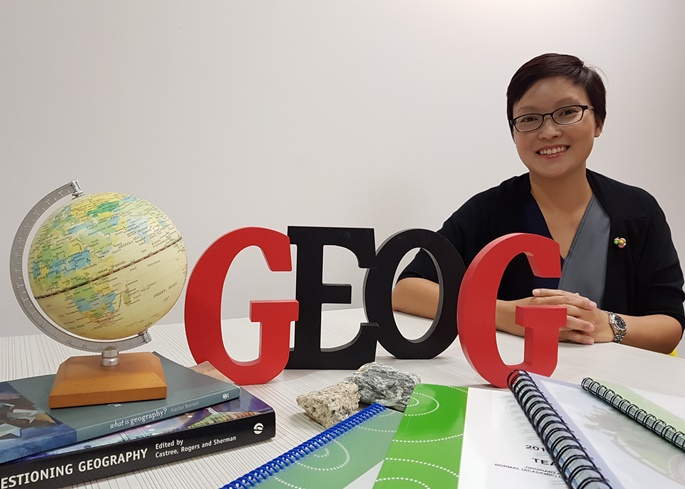Mr Yok Joon Meng, Yu Neng Primary, President’s Award for Teachers 2020 Finalist
Hope is a powerful thing and Yok Joon Meng knows this well. Raised in a single-parent family, he was volunteering to tutor children from single-parent homes well before he became a teacher. He was then working in the private sector, and his tutoring experience prompted him to switch careers.
“It was my aspiration to give children a sense of hope. To me, teachers are hope-givers.”
When Joon Meng arrived at Yu Neng Primary School 15 years ago, he became acutely aware that the majority of students did not have adequate exposure to the English Language at home. This made them shy away from speaking and writing in English.
So he set out to find ways to maximise his students’ exposure to English and help them develop a love for the language.
“When students have the passion for something, and enjoy the learning, they can create wonders,” he said. “As educators, it’s really about whether we want to let them be creative and represent their learning in a way they feel most comfortable.”
Engaging the digital natives
To engage his students, Joon Meng turned to technology. For a start, he used applications like Padlet and Tricider to encourage discussions among students.
Padlet is “like digital post-its”, he explained. Students put their ideas online and they can have discussions among themselves. Tricider enables discussion around pros and cons of a specific topic.
Joon Meng realised that students liked “being online” as opposed to standing up in front of a whole class. Particularly reserved students found it easier to share their opinions this way.
Tiffany Chua, a Primary 5 student whom Joon Meng taught in 2018, was one such child. She had transferred to Yu Neng the year before and was still feeling out of place. But once equipped with Tricider and Padlet, she started to participate more in class. Her confidence grew, and so did her social circle in school.
“Through technology, I can elicit responses from students who may not be so vocal,” said Joon Meng. For low-progress students, who may not be able to speak confidently, tech encourages them to share more openly with the class, he adds. “Their opinions are being valued and they feel happy.”
Technology also enables Joon Meng to offer differentiated lessons to his classes.
Using the Student Learning Space, an online learning portal, Joon Meng sets different types of tasks for students. For example, the lower progress groups may use drawings to demonstrate their understanding of a topic. Higher progress groups can be expected to use more complex words. Overall, students are more engaged as they can follow and participate in the lessons.
Re-writing strategies
To help students overcome their aversion to writing, Joon Meng wanted to help his students see writing as an essential life skill, rather than something to be practised and perfected only for the examinations.
He initiated the Joyful Writing Programme in 2018, in which students learn to write for a range of audiences and for a variety of purposes: from writing postcards and communicating with others to creating fairy tales. Some students even practised writing down instructions or procedures to suit various needs. “Getting them to think beyond the exams [was the difficulty]. They needed to understand that writing doesn’t equate to exam compos.”
Working in partnership with a Master Teacher from the English Language Institute of Singapore, Joon Meng introduced new ideas and strategies to break down the process of writing.
“It’s not about quotas of writing 4-5 [whole stories or essays] in a semester. We focussed on the process of one piece in each lesson: writing introductions and endings, for instance, in one lesson. Ideation in another, writing the climax etc…”
The smaller chunks let them take the students in-depth into each aspect. “By the end of the year, we would have looked at the various parts that constitute a piece of writing. This makes them [involved] in the process.”
Since these strategies were implemented, Yu Neng has seen improvements in the results at both the school and national level.
“Beyond results, we are heartened to see that students are more confident and willing to write, and fewer of them turn in blank scripts at the exams.”
Walking the talk
To encourage students to speak up and be more articulate, Joon Meng spearheaded the Pupil Oracy Programme (POP) in 2018.
“POP was developed from an assessment perspective to help our students tackle oral exams, explained Joon Meng “Our students were not very conversational. They didn’t know how to structure their thinking and sentences.”
“But this later morphed into many other programmes because being able to communicate well is a life skill.”
For instance, Primary 1 students are taught sentence starters with which they can begin, sustain and conclude conversations. They also learn non-verbal cues, body language, eye contact – the socio-emotional aspects of communication.
These communication skills are put to good use in Joon Meng’s Social Studies class, where students read and then discuss a range of topics. For instance, after reading about the Sotho tribe of boys in Africa, who herd animals, live by themselves in the mountain and make up their own games to play, the class could talk about access to education in different countries. Such stories are part of the World Class @ Yu Neng programme, which introduces students to contemporary and world affairs.
“In just one activity, the different areas of language learning are interconnected and not taught in silos,” he said.
Learning for life
Joon Meng wants students to practise in real-life all the things they are learning and to interact with diverse groups of people outside school.
An example is a project involving students from the Infocomm Club (now called the e-Nnovation Club) to contribute back to society by imparting their skills to members of a senior day activity centre located opposite the school, as well as grandparents of some of the students. They taught seniors how to operate devices, surf the internet, perform searches on YouTube for their favourite singers and read the news in order to help them bridge the digital divide.
“At the initial stages, students wondered why it took seniors so long to understand how the internet works. We reminded them of issues like language barriers,” he said.
Eventually it worked. While the seniors picked up tech skills, for the students it was a lesson in empathy and a real-life experience of the importance of good communication.
Get them interested, you’ve won…
In 2017, while Joon Meng was managing e-Nnovation Club, the mother of a student with special needs contacted him, requesting for her child to switch his Co-Curricular Activity as he had an affinity for coding. The school was amenable and Joon Meng took him on.
The student used coding to solve authentic problems and went on to win competitions with the skills he had picked up. He even presented a project to the Minister for Education. He also learnt to interact better with his peers and collaborate with them in group projects. “This helped with his social skills and the social-emotional aspect of communication,” said Joon Meng. Teachers, too, observed that he was more engaged in class.
Even after the student moved to secondary school, he furthered his interest in coding by joining the Infocomm Club, having built a strong foundation in Yu Neng.
“That experience demonstrated that if a child can find something to be passionate about, and experiences a sense of success, other positive outcomes will come about.
“So, don’t underestimate the children.”






